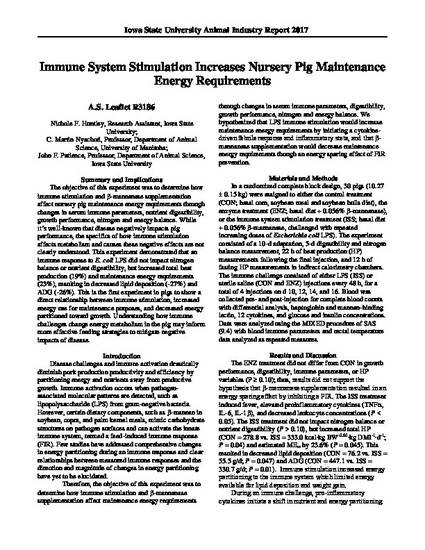
The objective of this experiment was to determine how immune stimulation and -mannanase supplementation affect nursery pig maintenance energy requirements through changes in serum immune parameters, nutrient digestibility, growth performance, nitrogen and energy balance. While it’s well-known that disease negatively impacts pig performance, the specifics of how immune stimulation affects metabolism and causes these negative effects arenot clearly understood. This experiment demonstrated that an immune response to E. coliLPSdid not impact nitrogen balance or nutrient digestibility, but increased total heat production (19%) and maintenance energy requirements (23%), resulting in decreased lipid deposition (-27%) and ADG (-26%). This is the first experiment in pigs to show a direct relationship between immune stimulation, increased energy use for maintenance purposes, and decreased energy partitioned toward growth. Understanding how immune challenges change energy metabolism in the pig may inform more effective feeding strategies to mitigate negative impacts of disease.
Available at: http://works.bepress.com/john-patience/50/
